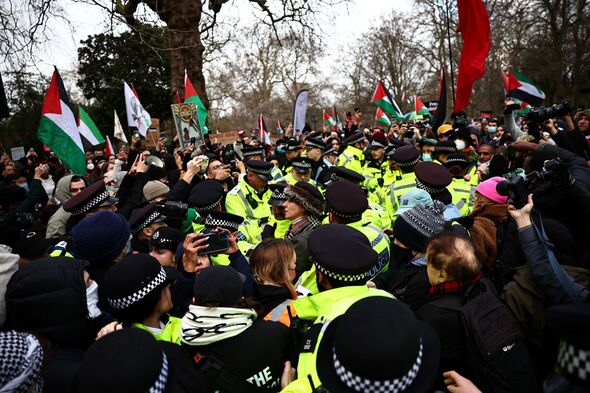Pro-Palestinian demonstrators marched through central London over the weekend, calling for an immediate ceasefire in Gaza one year on from the October 7 attacks in Israel.
According to organisers at the Palestinian Solidarity Campaign (PSC), some 300,000 people turned out to show support, while a smaller counter-protest was also held nearby.
The demonstration was largely peaceful, but the Metropolitan Police did report 17 arrests.
Of those taken into custody, police said three people had been arrested for assaulting an emergency worker, three for assault, eight for public order offences (four racially aggravated), one for a breach of Public Order Act conditions and two for supporting a proscribed organisation.
Supporting a proscribed organisation – deemed by the UK Government to be “concerned in terrorism” – is a criminal offence. Hamas and Hezbollah are both proscribed organisations in Britain.
But should protestors always face arrest for supporting a group labelled as terror-related? Vote below. Can’t see the poll? Click here.
The sheer size and scale of these largely peaceful demonstrations have been taking their toll on the Met Police.
Estimated figures from the PSC and the force agree these protests over the ongoing Israel-Hamas war represent the biggest protests in British history, outstripping the student protests of 2010 and the anti-Iraq war movement of 2010.
The Met assistant commissioner Matt Twist says the past year has been “the busiest period in terms of protests that we’ve ever had”.
He said: “As well as the [pro-Palestinian] marches, we now see counter-protests, and then we’ve had the growth in what I would call cultural nationalists, or some people characterise as the right wing, which have also been presenting an additional resourcing demand.
“We’re concerned about the widening and deepening of the conflict and what the implications are for this country, and for London in particular, across a range of issues. Our planning assumption is that these protests will continue.”
An estimated £46.8million has been spent on policing the demonstrations, involving 60,000 police shifts.
